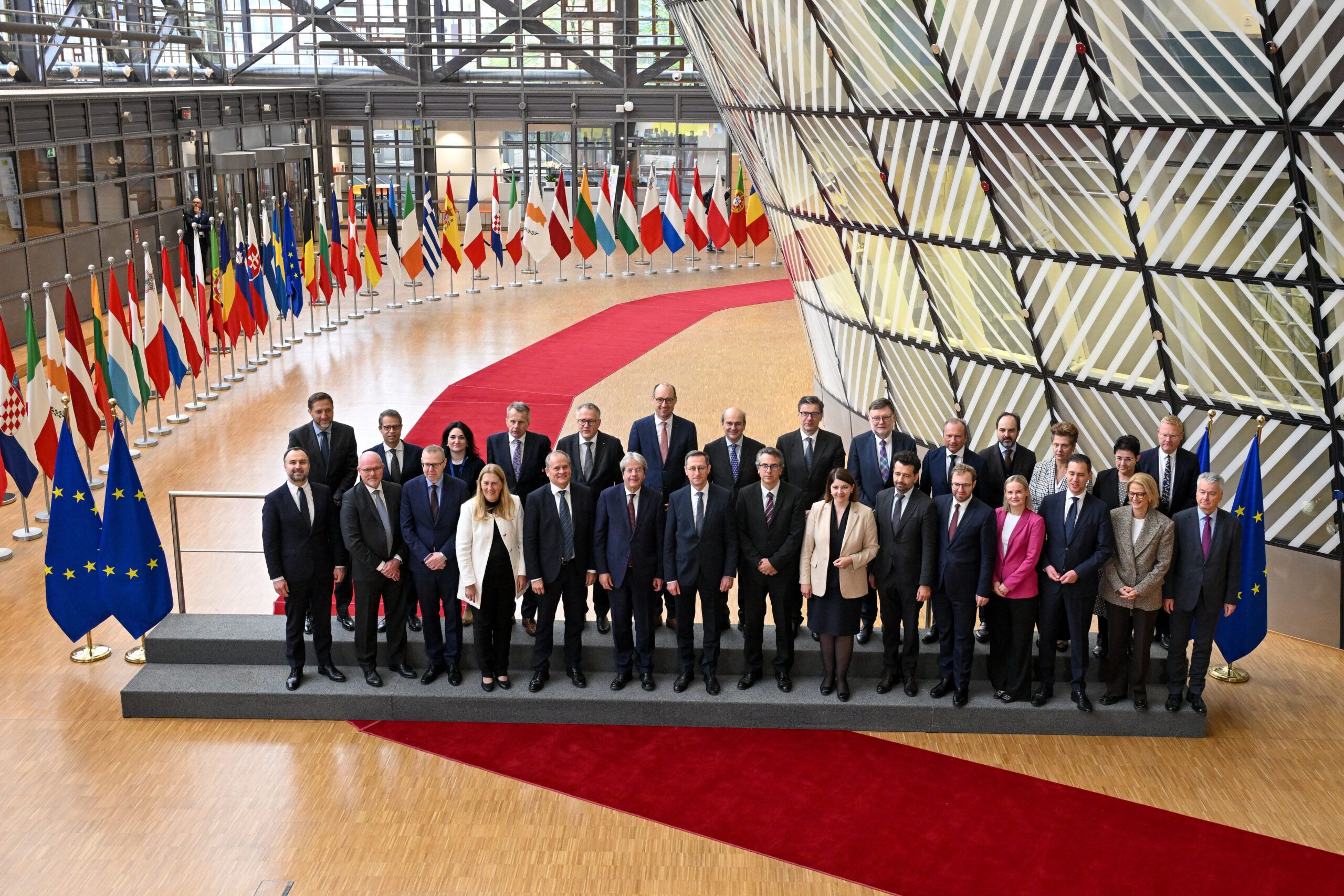The Council reached agreement today on new measures to make EU VAT rules compatible with the digital age. This legislative package, with new rules on e-invoices and real-time data reporting and on business activities carried out through digital platforms, will combat tax fraud, support businesses and promote digitisation.
Mihály Varga, Hungarian Minister of Finance, said: “After almost two years of negotiations, the Council has reached an agreement on the VAT package. This is a cornerstone for the digital transition and an important step towards improving the EU’s competitiveness. The new rules will update our VAT systems to reflect the digitalisation of our economies, help combat VAT fraud and simplify administrative obligations for small businesses and private service providers. Today’s decision was preceded by intensive discussions led by the Hungarian Presidency; we therefore thank all delegations for their constructive approach and hard work.
The agreement concerns three acts – a directive, a regulation and an implementing regulation – which, taken together, introduce changes on three aspects of the VAT system. The new rules will:
- make VAT reporting obligations for cross-border transactions fully digital by 2030; r
- equire in most cases online platforms to pay VAT on short-term accommodation and passenger transport services where private service providers do not charge VAT;
- improve and extend online VAT one-stop shops so that businesses do not have to go through costly VAT registrations in each member state where they operate.
Digital VAT reporting
Currently, businesses have to submit “recapitulative statements” every few months to national tax authorities for goods and services sold to businesses in other EU Member States where the products are taxable. This gives fraudsters the possibility to take advantage of the difficulties for authorities to quickly detect suspicious or fraudulent transactions, as the data is incomplete and not available in real time.
The Council has now agreed to establish a system of real-time digital reporting for VAT purposes by means of e-invoices.
Businesses will issue e-invoices for cross-border transactions with other businesses and automatically communicate the data to their tax administration. This will be based on the existing European standard for e-invoicing in public procurement. National tax administrations will then share the data via a new IT system that will be able to analyse suspicious activities.
A national framework will ensure the quality of data to be included in e-invoices, with flexibility for implementation by Member States.
This will provide Member States with fast and comprehensive information on cross-border transactions. which they can use to combat VAT fraud.
The Council agreed that the EU system should be in place by 2030 and all current national systems should be interoperable with the EU system by 2035.
VAT for the platform economy
Currently many online providers of accommodation rental and passenger transport services do not pay VAT. This is mainly because they are often private providers (such as a driver or a person renting out their flat) or small businesses – who are not normally obliged to register for VAT – or are often simply unaware of their obligations or the rules for compliance with tax obligations in other Member States.
This results in large amounts of VAT going uncollected and sometimes creates unfair competition between classic accommodation and transport services and those operating through platforms.
Under the new rules, platform economy operators will be responsible for collecting and paying VAT when their service providers do not do so themselves (under the so-called “taxable person deemed to be a supplier” model). The platform will collect the VAT directly from the customer and pay it to the tax authorities.
The Council has given Member States more flexibility by extending the definition of short-term rental of accommodation for tax purposes and by giving them the possibility to exempt small and medium-sized enterprises (SMEs) from the deemed taxable supplier rules. The Council also agreed on a short transitional period for the application of the supplier taxable person rules.
One-stop shop for VAT registration
At the moment, a “one-stop shop” system allows businesses to declare and pay the VAT due on the sale of goods and services to consumers from one EU country to another, through the administration of one Member State and in one language. But businesses that want to sell goods to consumers in a Member State other than their own (e.g. from a warehouse or a weekly market located in that Member State) still have to register for VAT twice.
But businesses that want to sell goods to consumers in a Member State other than their own (e.g. from a warehouse or weekly market located in that Member State) still have to register twice for VAT purposes, so the new rules will now extend the scope of the current “one-stop shops” to cover not only cross-border supplies, but also business-to-consumer sales of certain items, such as electricity or gas, which take place in a Member State other than their own.This includes situations where the business simply wants to move its stock to another member state for onward sale directly to the consumer.
In this way, the extended one-stop shop will allow more businesses to fulfil their VAT obligations through a single online portal and in a single language.
The Council also agreed to transfer, from the supplier to the purchaser of a good or service, the responsibility for payment of VAT on B2B transactions where the supplier is not established in the Member State where the VAT is due (under the so-called “reverse charge mechanism”). Unlike the Commission in its proposal, the Council decided not to extend to all goods supplied by online platforms and all transfers of own goods the current provision on the taxable person deemed to be the supplier, which places the responsibility for collecting VAT on the platform facilitating the transaction and not on the underlying supplier. It also agreed not to amend the rules on works of art and antiques. The Council also decided to discuss in the framework of the VAT aspects of the proposal for the reform of the EU Customs Code, which is currently under discussion in the Council, the proposal to make the one-stop shop for imports compulsory.
Context and next steps
On 8 December 2022, the Commission presented the VAT in the digital age package, which consists of three proposals:
- a proposal for a Council Directive amending Directive 2006/112/EC as regards VAT rules in the digital age;
- a proposal for a Council Regulation amending Regulation (EU) No 904/2010 as regards VAT rules in the digital age; a proposal for a Council Regulation amending Regulation (EU) No 904/2010 as regards VAT rules in the digital age;
- and a proposal for a Council Regulation amending Regulation (EU) No 904/2010 as regards VAT rules in the digital age.904/2010 as regards VAT administrative cooperation arrangements needed in the digital age; a proposal for a Council implementing regulation amending implementing regulation (EU) No 282/2011 as regards notification requirements for certain VAT schemes.
The directive and the regulation are subject to a special legislative procedure. Unanimity is required in the Council for all three legal acts. The European Parliament was consulted and delivered its opinion on 22 November 2023. In any case, due to the substantive changes made by the Council to the Directive, the European Parliament will be re-consulted on the agreed text.
The Council will then need to formally adopt the text before it can be published in the Official Journal of the EU and enter into force.
More information: European Council







Leave a Reply